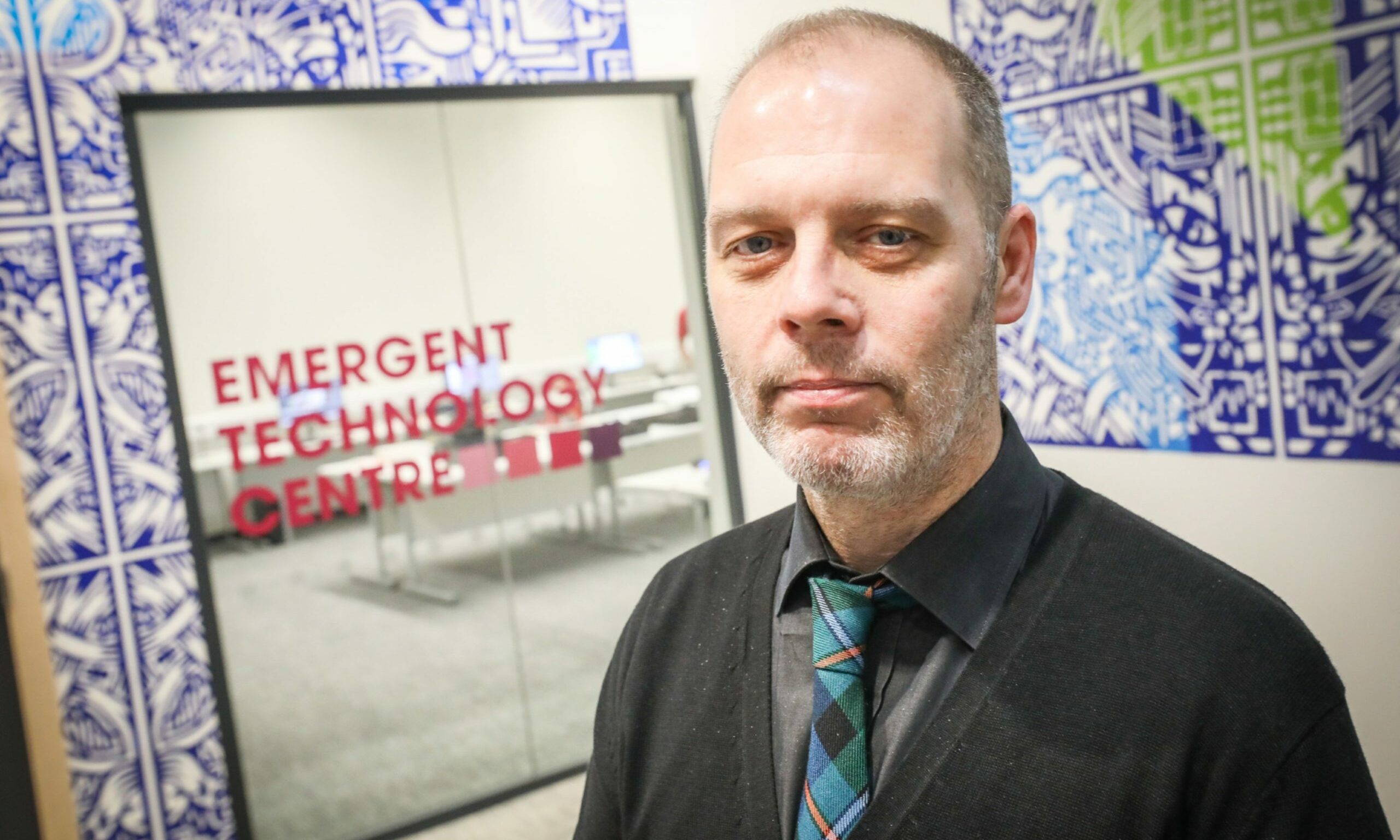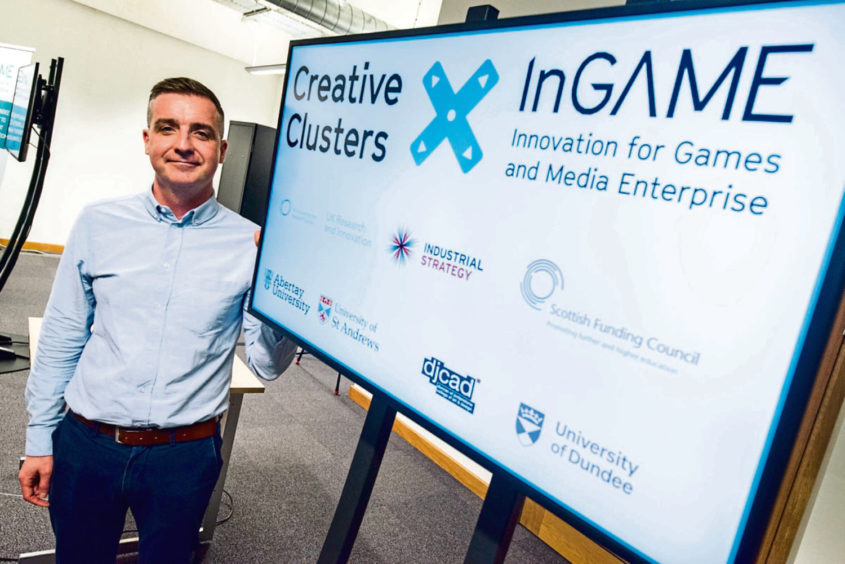Surging employment in the Scottish games sector is set to benefit games students in Dundee.
A report from trade association TIGA, published today, shows jobs growth in Scotland in the games industry of 17% over an 18-month period.
The research shows Scotland has 1,803 permanent and full-time equivalent creative staff working on games development across 96 companies in April 2020.
This is up from 84 companies employing 1,537 staff in November 2018.
Good news for graduates
Abertay University’s dean of design and informatics, Professor Gregor White, said it was good news for students.
He said: “TIGA’s report showing another period of strong growth in the Scottish sector is welcome news in uncertain times.
“Recent developments in the Scottish sector reflect a period of consolidation, growth in studio size and inward investment by major technology companies.
“All of which is good news for graduates from games courses looking for entry level opportunities and strong career prospects.
“Young people and professionals making the decision to study and build careers in the games industry should look to do it here in Scotland.”
Boost to economy
The report states that Scotland is home to 7.3% of the UK’s total games companies and 10.7% of its developer headcount.
Scotland’s games development sector supports an additional 3,296 indirect jobs, up from 2,810 in November 2018.
Annually, Scottish games development companies are estimated to invest £106 million in salaries and overheads, and contribute £97m in direct and indirect tax revenues to HM Treasury.
They make a direct and indirect contribution of £236m to the UK’s gross domestic product (GDP).
Reasons for the jobs boom
Dr Richard Wilson, TIGA chief executive, said: “Growth in headcount has been driven in part by inward investment by several major overseas companies, such as Epic and Unity; partly by strong growth in Scotland’s larger studios; and partly by a spate of start-ups.
“Scotland represents the fourth largest games cluster in the UK.
“Scotland has a critical mass of experienced games developers; renowned universities preparing skilled graduates for the games industry, including TIGA accredited Abertay University; and supportive agencies including Scottish Enterprise and Creative Scotland. The UK Games Fund is also based in Dundee.”
He said there were three ways to ensure the environment for Scotland’s games industry remains favourable – by enhancing video games tax relief, by introducing a games investment fund to improve access to finance, and by strengthening industry and university links.
Dundee’s InGAME project
Sean Taylor, director of the InGAME project to increase the scale and value of the Dundee games cluster, said the sector had demonstrated “incredible resilience and ingenuity” during Covid-19.
He highlighted plans for an e-sports arena in Dundee and the recent success of several city firms as signs the future was bright.
“When you add the R&D support, services and international collaboration opportunities offered by InGAME, you have the foundations of sustained and sustainable growth,” he added.












